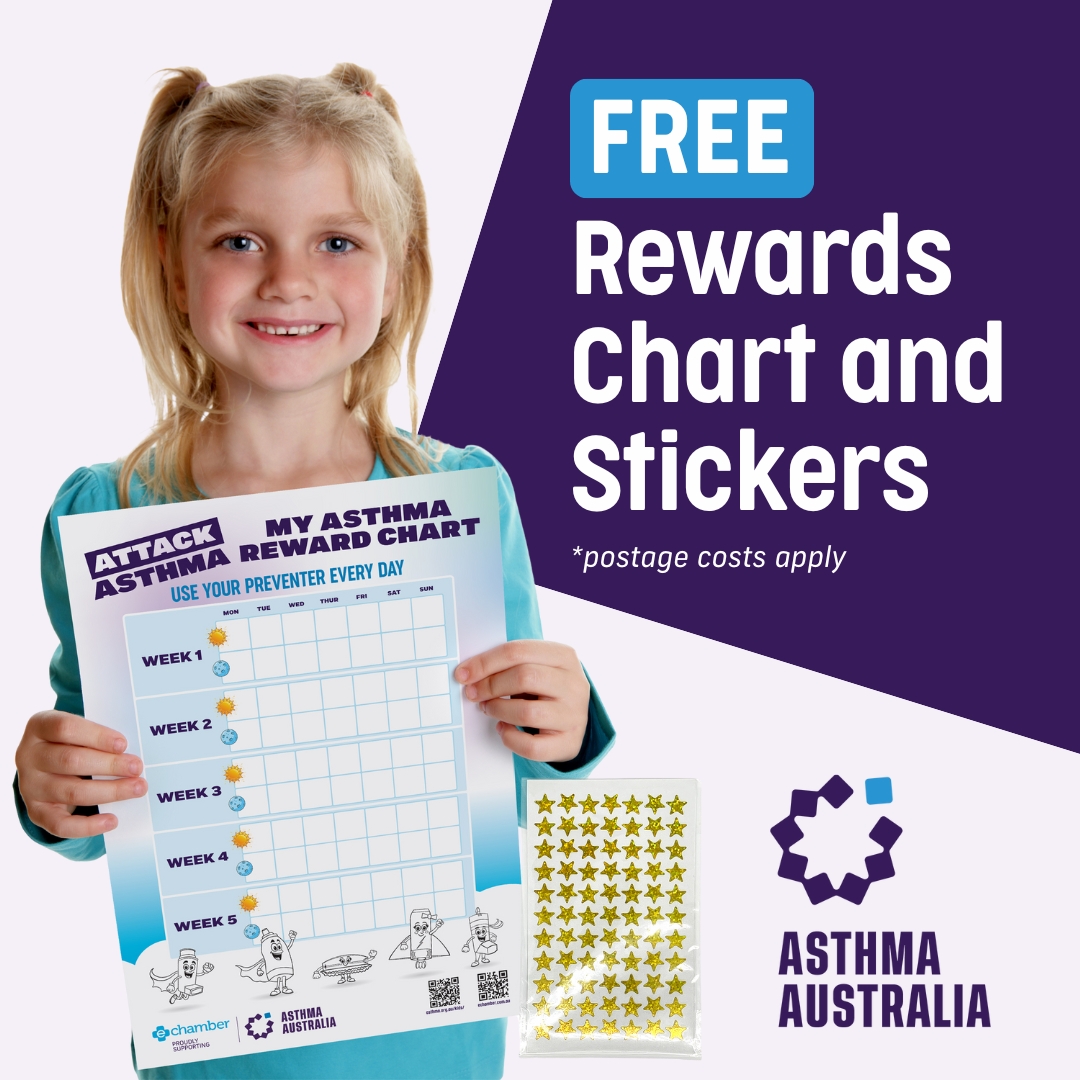New Research Exposes the Hidden Emotional Toll of
Childhood Asthma on Families
New research (1) from Asthma Australia has uncovered a worrying paradox: while most parents or carers believe their child’s asthma is under control, their fears and behaviours and kids’ hospitalisation rates tell a very different story.
- 94% of parents of a child with asthma say they feel confident managing their kid’s condition, but
- 60% live in constant fear of an attack and nearly one in three (32%) feels emotionally drained.
- 58% of children are not using their preventer medication daily or as recommended, and
- asthma remains the leading cause of disease burden in children ages 1-14 (2), with around 26,500 children under 15 visiting emergency departments every year for the condition (3).
“Parents may feel confident, but the reality is that young people continue to face a massive asthma burden. Too many children aren’t using their preventer medication in an effective way and asthma remains one of the most common reasons for kids’ hospitalisations. Behind the confidence is fear, exhaustion and stress. This is a heavy emotional toll on families that we have the power to change,” said Kate Miranda, CEO of Asthma Australia.
The research highlights three major gaps putting children at risk:
- Missed or dismissed symptoms – 66% of parents of a child with asthma-like symptoms of wheeze, cough or breathlessness assume these are a lingering cold, virus or allergies. Of those who suspect asthma, nearly a third (30%) don’t seek an asthma diagnosis because they think the symptoms aren’t “severe enough.” Asthma can be life-threatening, so it is crucial that children with asthma are diagnosed and get the right treatment as early as possible, before their symptoms get worse.
- Outdated or missing Asthma Action Plans – While 42% of parents say their child’s Asthma Action Plan is reviewed annually, guidelines recommend reviews for kids happen every six months (4). 69% of children are missing these critical updates.
- Underuse of preventer medication – Despite being the most effective way to reduce attacks, 58% of parents of a child with asthma admit their child doesn’t use their preventer daily.
The impact extends beyond health:
- 57% of parents of a child with asthma worry about their child missing out on normal activities.
- 58% of parents of a child with asthma fear long-term health effects.
- 35% of parents of a child with asthma worry about their child’s confidence, and self-esteem issues as a result of their asthma, while 30% believe their child has felt left out or isolated because of the condition.
Chris Pearce GP and Asthma Australia Board Member said: “Good asthma control means a child can live normally and go about their daily activities. This starts with recognising the early signs of asthma — frequent coughing, especially at night or in the early morning; difficulty breathing; noticing tightness or pain in the chest and the high-pitched sound that occurs with asthma that we call wheezing.
“Young children may find it difficult to explain their discomfort and parents or carers may simply see that their child is short of breath. Parents who notice these symptoms should see their doctor for a comprehensive assessment, and if asthma is diagnosed, get an Asthma Action Plan.
“Once a diagnosis is made, maintaining control is key: children need to take their preventer daily as prescribed so they are protected from triggers like dust, pollen, cold air, or exercise, and they don’t experience severe symptoms during a cold or virus. Following this routine helps keep symptoms at bay and allows children to thrive.”
Asthma Australia is calling for urgent action this Asthma Week:
- Parents: don’t dismiss symptoms, ensure preventer medicine is taken daily and update your child’s Asthma Action Plan every 6 months.
- Health professionals: support families with regular reviews and reinforce the importance of daily preventer use.
“Asthma is serious, but it can be controlled,” Ms Miranda said. “This Asthma Week, we’re calling on parents to act: recognise the signs, don’t delay seeking medical advice, keep your child’s Asthma Action Plan up to date and follow it with your healthcare professional’s guidance, and make sure a prescribed preventer is taken every day. Taking all of these steps that focus on prevention is what keeps children safe, healthy and out of hospital.”
Families can visit asthma.org.au/kids/attack/ to find out how they can attack their asthma and help their children thrive.
Asthma Australia launches its national Attack Asthma campaign this week to coincide with Asthma Week. The campaign aims to help bring awareness to asthma symptoms and treatment options for kids.
ENDS
Media contact
Emma Nunan | Ogilvy Health | 0421 429 584 | [email protected]
Trinity Frederick | Asthma Australia | 0413 99 22 82 | [email protected]





 1800 278 462
1800 278 462



